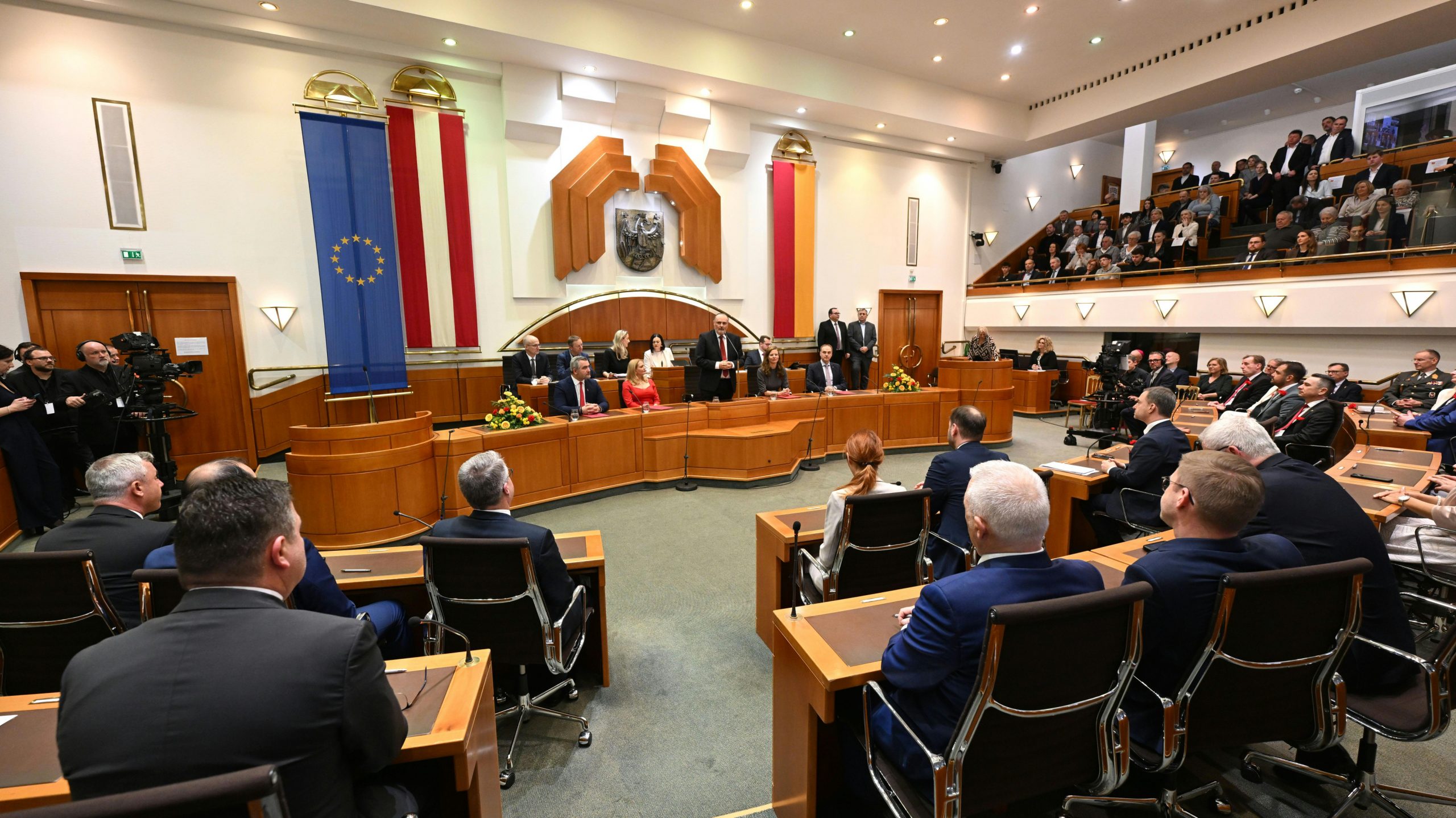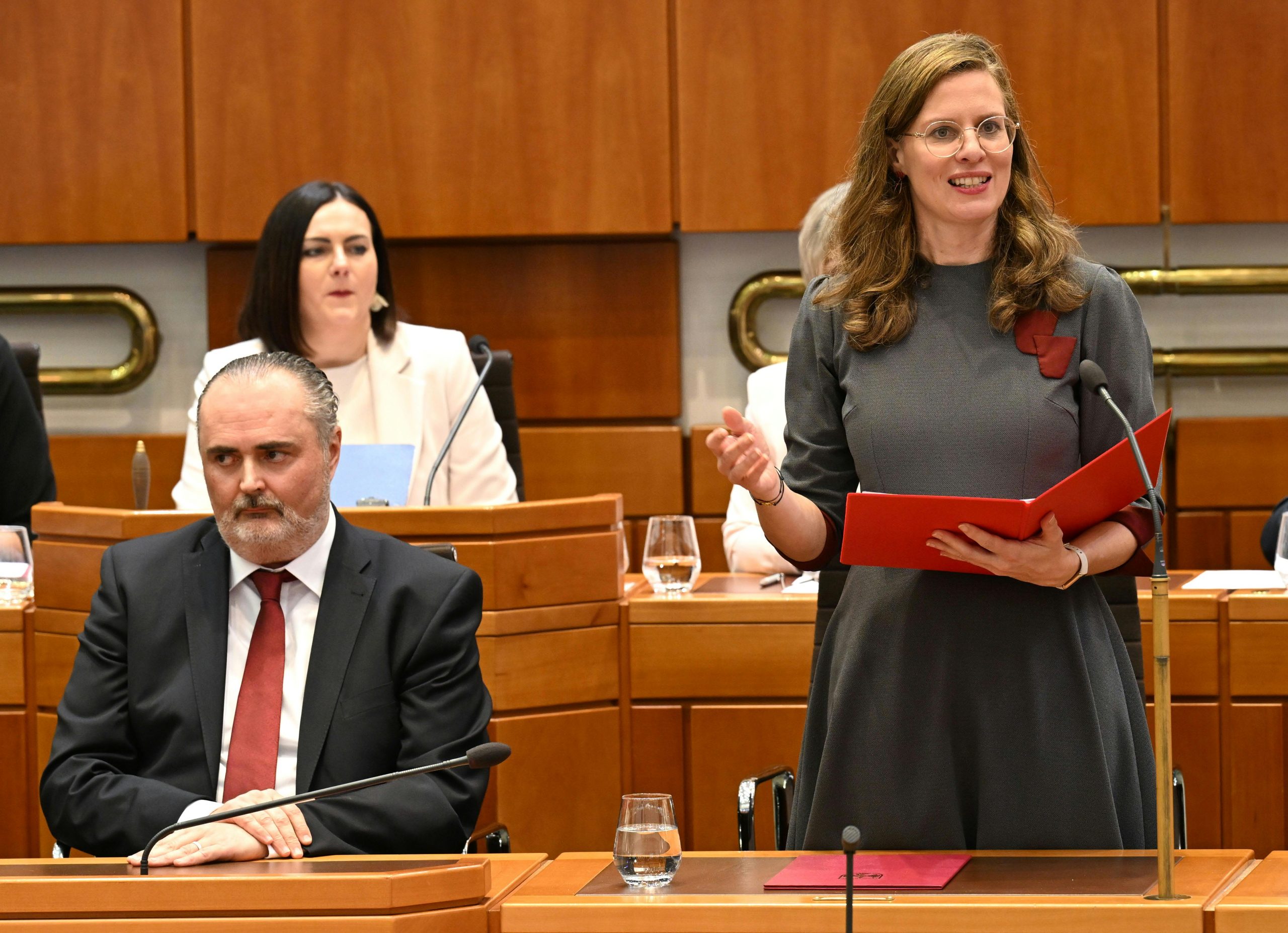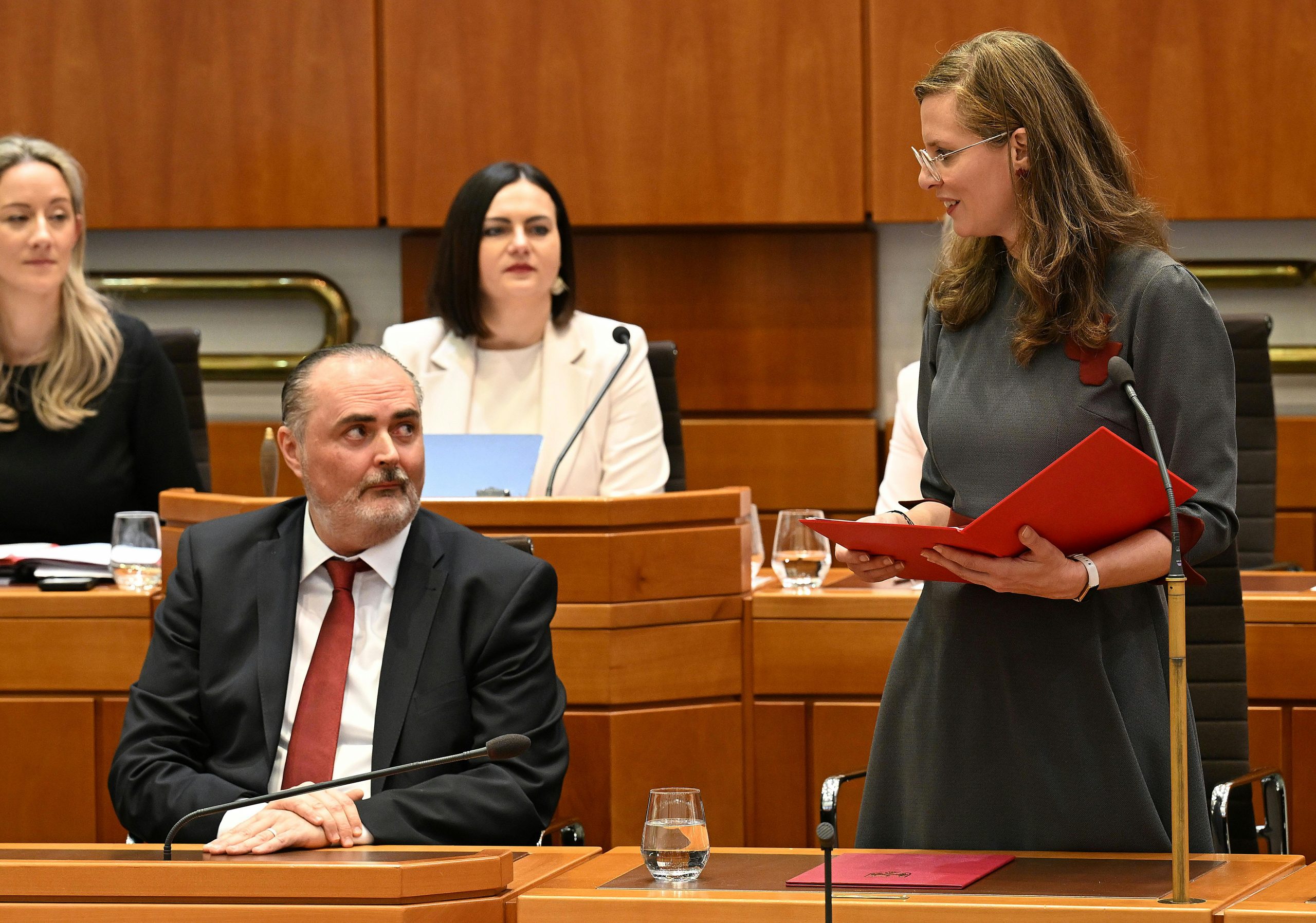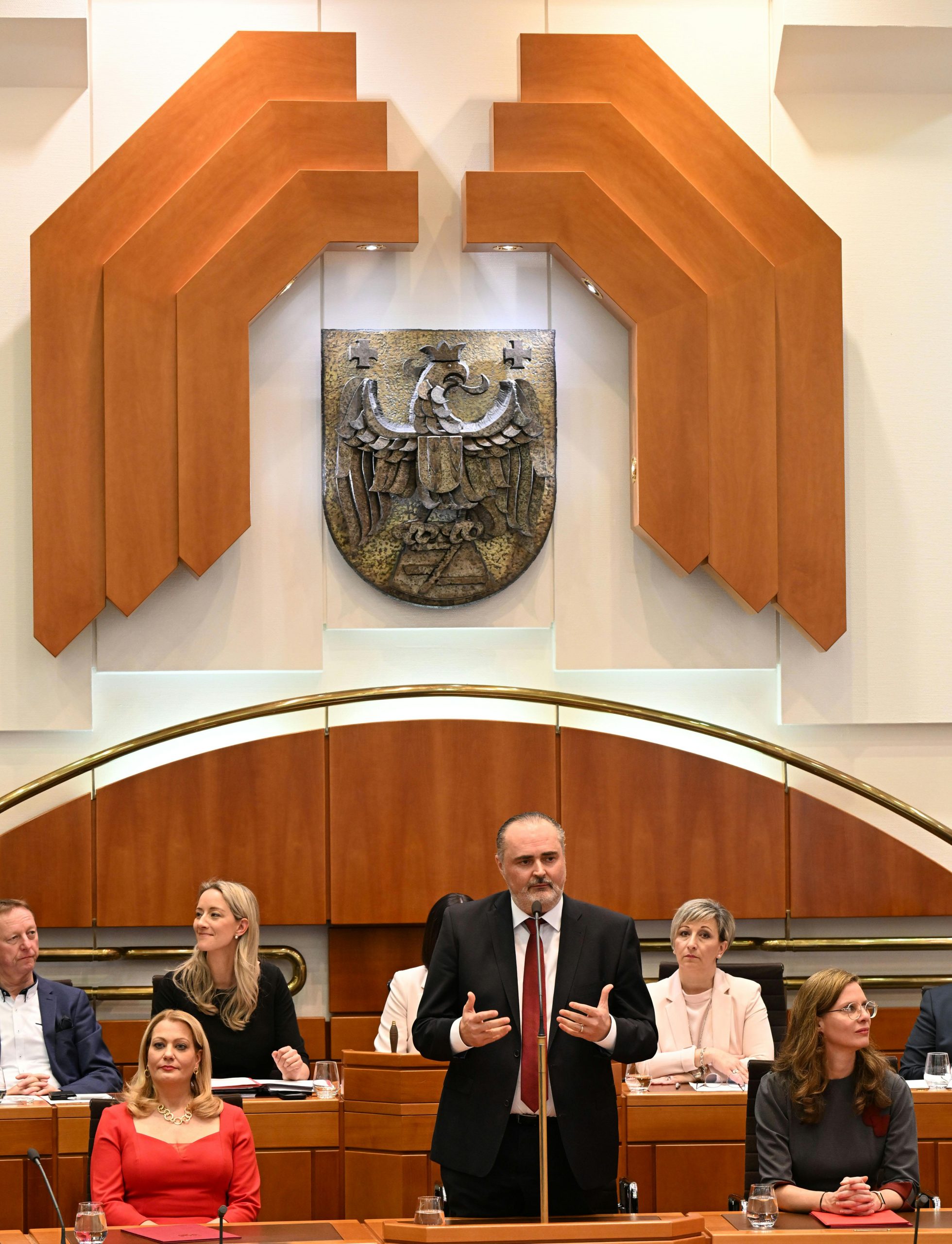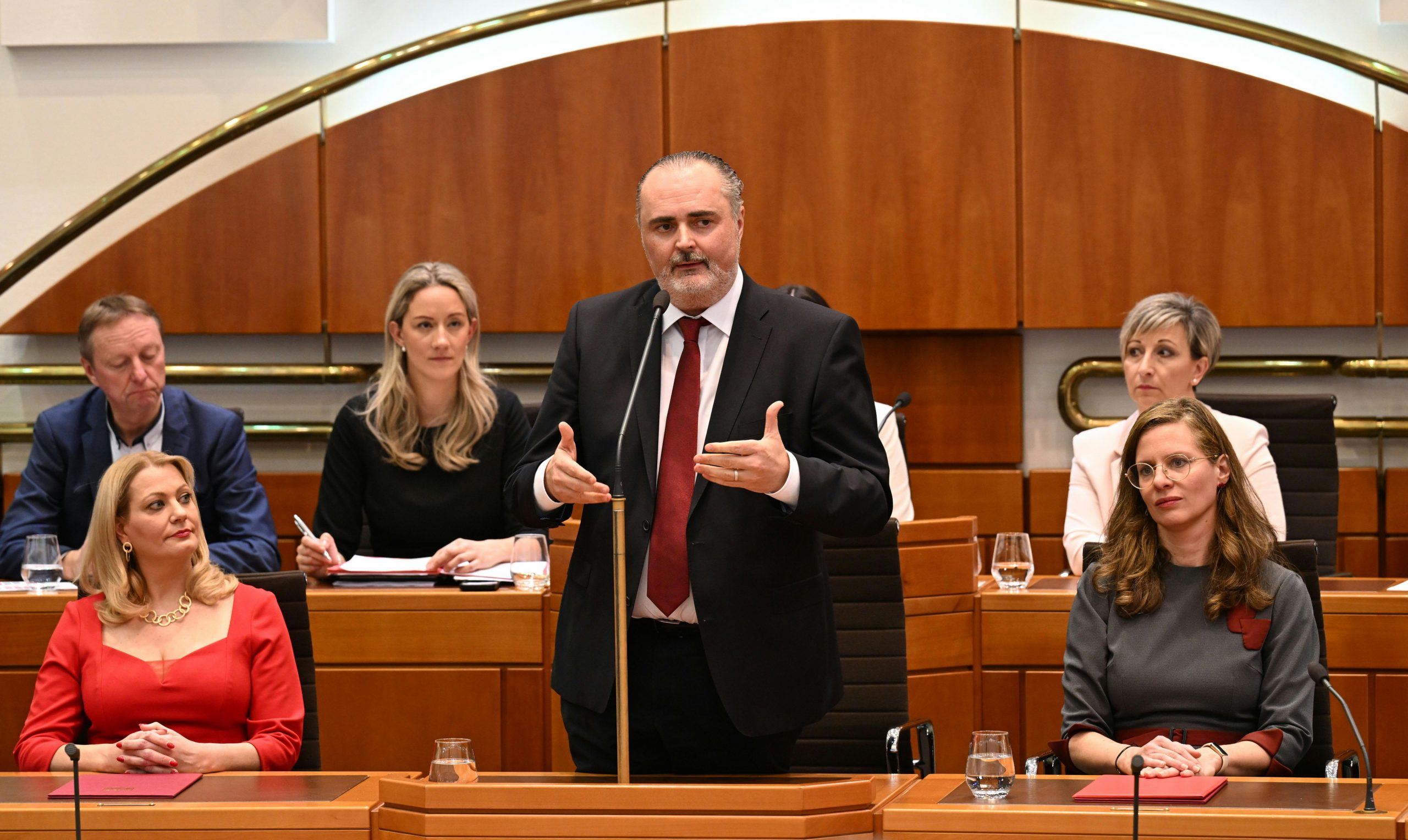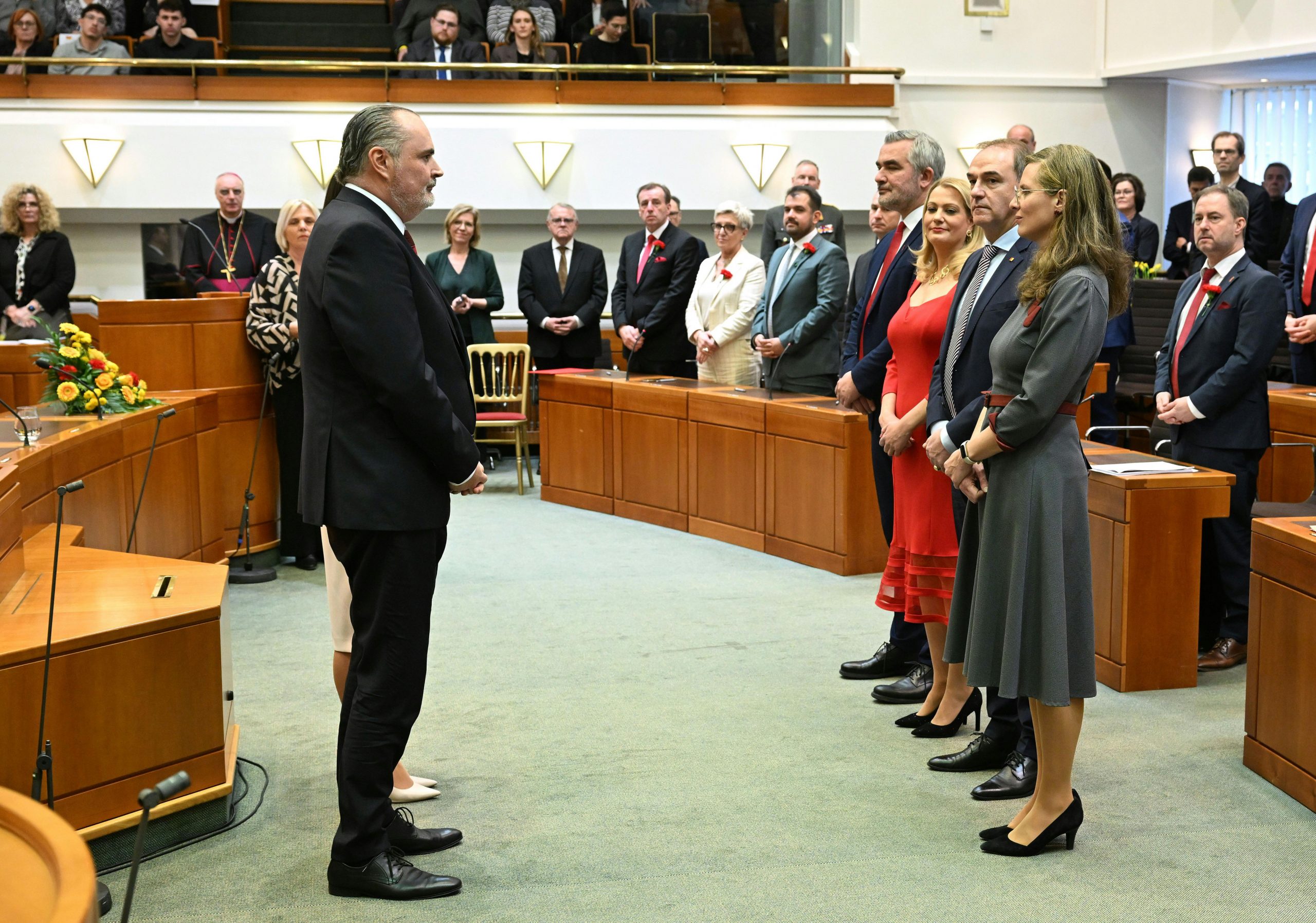Burgenland's New State Parliament Constitutes Itself

The Burgenland state parliament re-elected Hans Peter Doskozil (SPÖ) as governor during its inaugural session on Thursday. Doskozil and his government team received votes from 19 of the 36 deputies. The FPÖ and ÖVP had already announced in advance that they would not vote for the new red-green state government. For the Greens, this is their first participation in government in Burgenland.
State Parliament Director Christina Krumböck and State Office Director Ronald Reiter accompanied the re-elected governor to the state parliament after the election, where he was sworn in on the state constitution by the new state parliament president Astrid Eisenkopf (SPÖ). In addition to Anja Haider-Wallner (Greens) as the new deputy governor, the government includes the already known state councillors Heinrich Dorner, Leonhard Schneemann, and Daniela Winkler (all SPÖ). Doskozil will be sworn in on the federal constitution by Federal President Alexander Van der Bellen tomorrow, Friday.
Appeal to the Burgenland State Parliament
After his election as governor, Doskozil thanked for the trust and the mandate to "work in the interest of the state and in the interest of the population." The hand of the red-green state government will be extended in all directions: "We do not want to engage in client politics, but we want to be a government for all Burgenlanders," he emphasized. As "servants of the people," they will also reach out to ethnic groups, emergency services, social partners, and churches. He appealed to the state parliament to live good cooperation and to fulfill the exemplary role they have for the population.
He warned against division and polarization by political actors across Europe. "We are experiencing a phase of post-rationality that is no longer supported by reason," he noted. Rather, it is often the case that promises made by politicians "actually no longer hold the moment they are spoken." This can also be observed in the USA, although he does not want to draw a comparison - "I hope that remains unparalleled."
In Burgenland, credibility and trust in politics should be upheld and work should be done for the population. "We will work well for our homeland Burgenland over the next five years, with all the difficult phases that will come our way - they can be multifaceted and unexpected, as the last period has shown," said Doskozil. And: "We will take care of our homeland Burgenland."
"Countermodel to Populism"
During the coalition negotiations, questions were asked, explained Haider-Wallner: "What do the Burgenlanders need, what does the economy, tourism, health, care, and nature need? The government program 'Future Plan 2030' is our joint answer to that." The program is also an "effective countermodel to populism." The new government now has "five years to make the lives of Burgenlanders a little better," she referred to the 30 chapters in the program. This is a "bold" program, and this boldness also means making compromises - where necessary.
All 36 state parliament deputies were also sworn in on Thursday, 15 of whom are new to the state parliament. The strongest faction remains the Reds with 17 mandates. The Greens, who narrowly made it back into the state parliament, still hold two seats. The coalition thus has a surplus mandate. The FPÖ is represented with nine deputies, and the ÖVP with eight. Both the meeting room and the visitor galleries were fully occupied on Thursday, including with their relatives. Among the numerous honorary guests, such as Minister Leonore Gewessler (Greens), former governor Hans Niessl (SPÖ), or diocesan bishop Ägidius Zsifkovics, Doskozil's wife Julia and his adult son Lukas from his first marriage were also among the visitors.
Doskozil's former deputy, Eisenkopf, who is leaving the government team, was elected as the new President of the State Parliament. Johann Tschürtz (FPÖ) was appointed as the Second President of the State Parliament, and Claudia Schlager (SPÖ) as the Third. Voting was conducted internally within the factions by the 17 red and the nine blue deputies. All three elections were unanimous.
Social Media and Initiative for Girls
Eisenkopf emphasized her intention to open the State Parliament even more to the public in the future. A focus will be placed on social media to reach the youth, and the new President of the State Parliament also plans a special initiative for girls and young women. She wants to show them career opportunities, make politics "appealing," and encourage them to pursue a political career.
Political discussions, as they take place in the State Parliament, are the essence of democracy, "when conducted with mutual respect." As President of the State Parliament, she will "put the common before the divisive," Eisenkopf stated. "My doors are always open." It is important to always keep the well-being of the people in mind.
Her predecessor, Robert Hergovich (SPÖ), stepped down from the presidency after about a year and a half. "I leave with gratitude. It was a great honor for me to hold this office," he said. His place is now back among the ranks of the state parliament members. Additionally, he will become the government coordinator and, alongside club chairman Roland Fürst, the chairman of the SPÖ club.
State Parliament Elected Federal Council Members
The new State Parliament also elected the representatives in the Federal Council, namely Thomas Schmid and Mario Trinkl (both SPÖ) as well as Thomas Karacsony (FPÖ). The new chairman of the State Audit Committee is Norbert Hofer (FPÖ).
Women are underrepresented in the new State Parliament. Only a quarter of the deputies are female, whereas in the recently concluded legislative period, it was almost a third. The deputies who moved up due to the formation of the government in the SPÖ did not bring any change here, with only five of the 17 being women (29 percent). The FPÖ was able to fill nine mandates and will have two women in their ranks of deputies in the future (22 percent). The election losses of the ÖVP also affected the proportion of women. Among the eight turquoise deputies, there is only one woman (13 percent). Only with the Greens, who adhere to the zipper principle, are the two seats evenly distributed, corresponding to a women's quota of 50 percent.
(APA/Red)
This article has been automatically translated, read the original article here.






